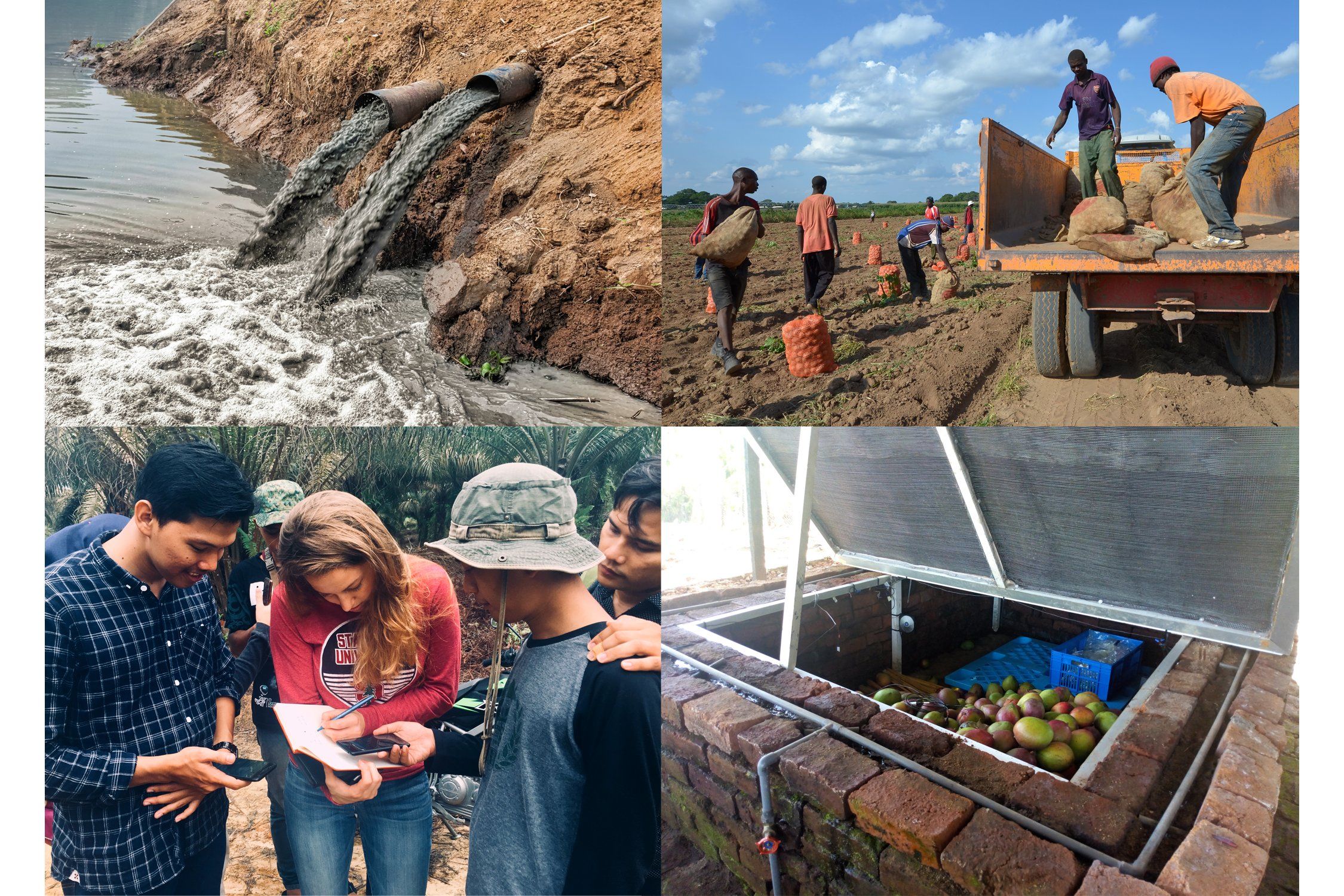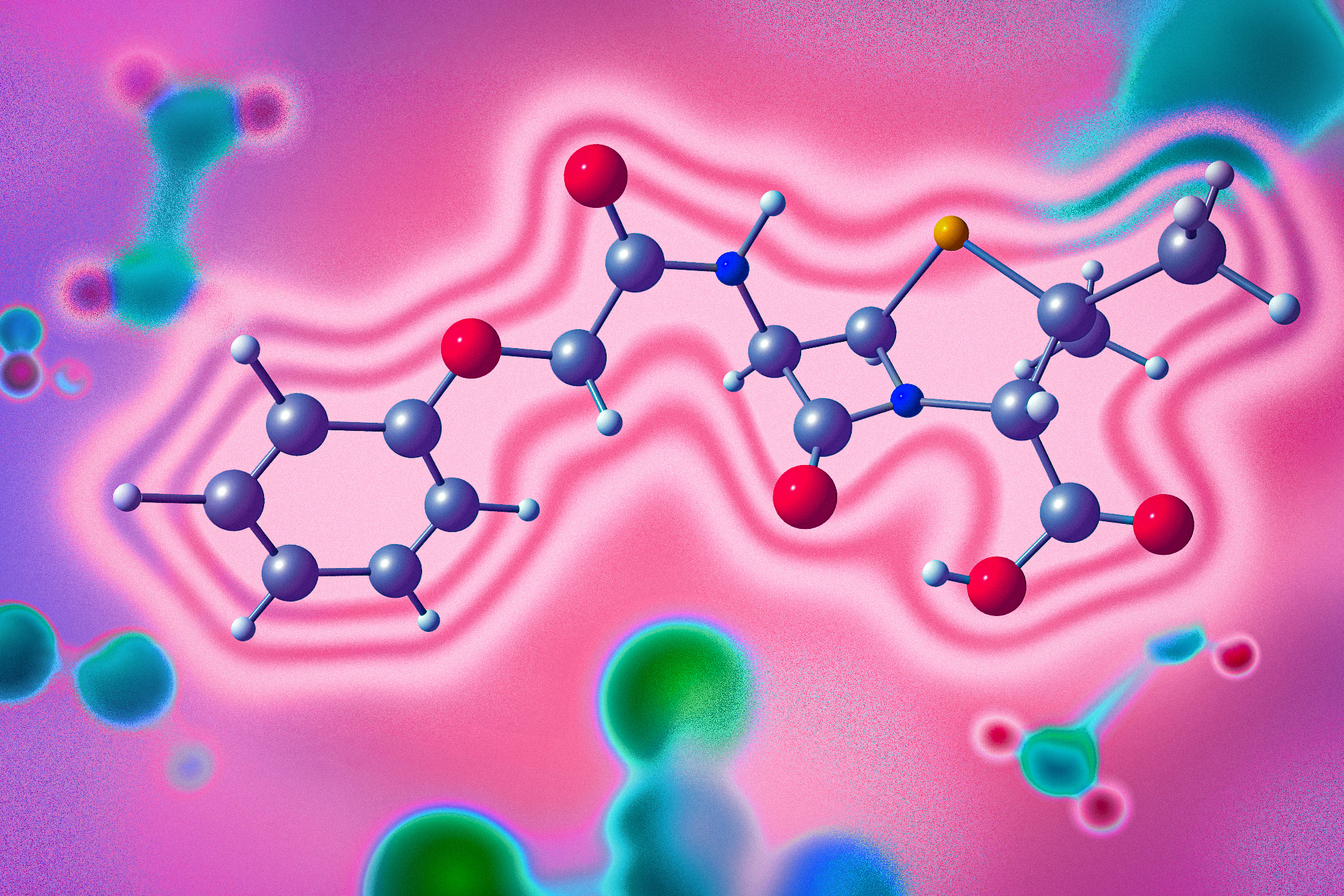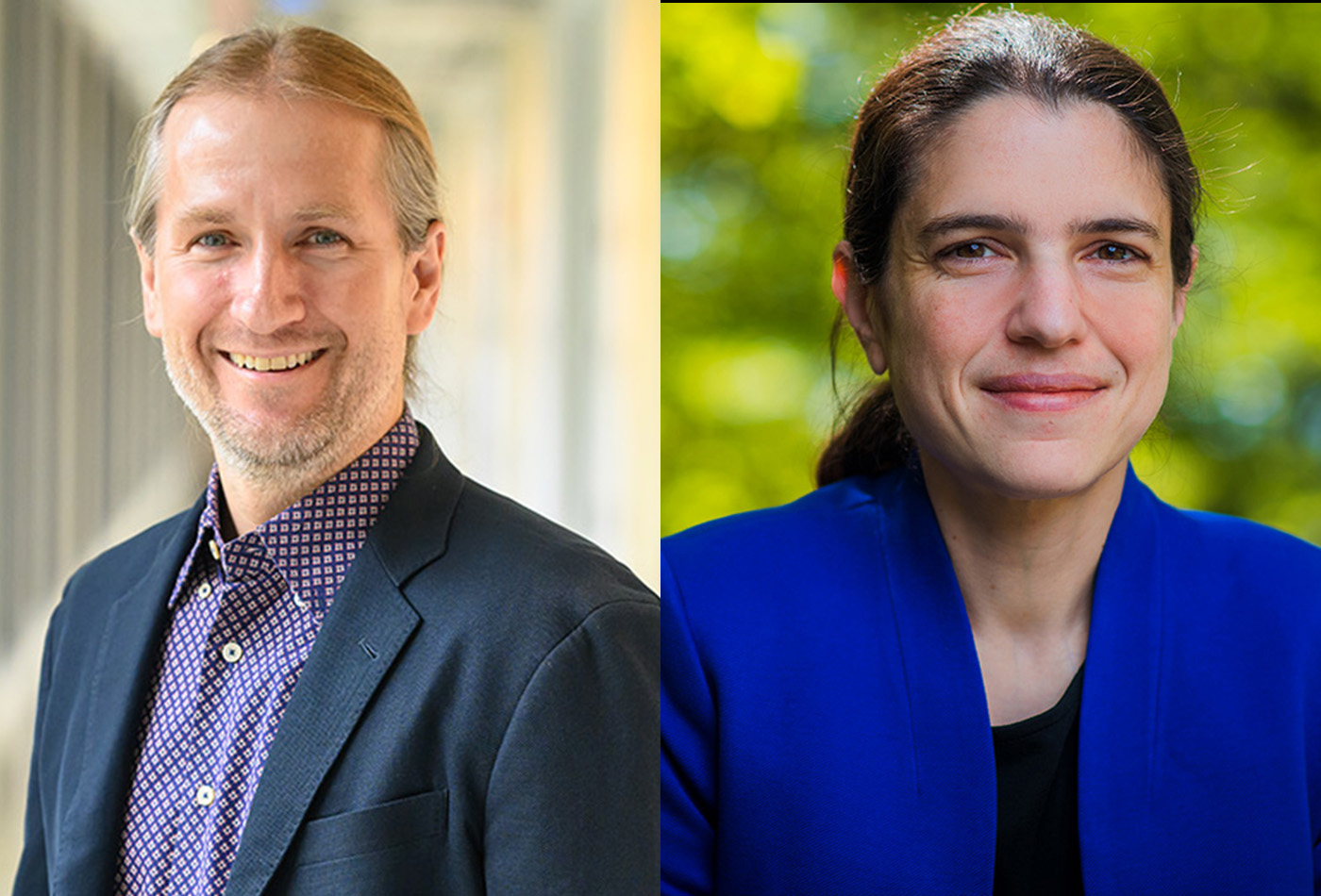J-WAFS announces seven new seed grants
Nine principal investigators from MIT will receive grants totaling over $1 million for solutions-oriented research into global food and water challenges.
Agricultural productivity technologies for small-holder farmers; food safety solutions for everyday consumers; sustainable supply chain interventions in the palm oil industry; water purification methods filtering dangerous micropollutants from industrial and wastewater streams — these are just a few of the research-based solutions being supported by the Abdul Latif Jameel Water and Food Systems Lab (J-WAFS) at MIT. J-WAFS is funding these and other projects through its fifth round of seed grants, providing over $1 million in funding to the MIT research community. These grants, which are funded competitively to MIT principal investigators (PIs) across all five schools at the Institute, exemplify the ambitious goals of MIT’s Institute-wide effort to address global water and food systems challenges through research and innovation.
This year, seven new projects led by nine faculty PIs across all five schools will be funded with two-year grants of up to $150,000, overhead-free. Interest in water and food systems research at MIT is substantial, and growing. By the close of this grant cycle, over 12 percent of MIT faculty will have submitted J-WAFS grant proposals. Thirty-four principal investigators submitted proposals to this latest call, nearly one third of whom were proposing to J-WAFS for the first time. “The broad range of disciplines that this applicant pool represents demonstrates how meeting today’s water and food challenges is motivating many diverse researchers in our community,” comments Renee Robins, executive director of J-WAFS. “Our reach across all of MIT’s schools further attests to the strength of the Institute’s capabilities that can be applied to the search for solutions to pressing water and food sector challenges.” The nine faculty who were funded represent eight departments and labs, including the departments of Civil and Environmental Engineering, Mechanical Engineering, Chemical Engineering, Chemistry, and Economics, as well as the Media Lab (School of Architecture and Planning), MIT D-Lab (Office of the Vice Chancellor), and the Sloan School of Management.
New approaches to ensure safe drinking water
Nearly 1 billion people worldwide receive their drinking water through underground pipes that only operate intermittently. In contrast to continuous water supplies, pipes like these that are only filled with water during limited supply periods are vulnerable to contamination. However, it is challenging to quantify the quality of water that comes out of these pipes because of the vast differences in how the pipe networks are arranged and where they are located, especially in dense urban settings. Andrew J. Whittle, the Edmund K. Turner Professor in Civil Engineering, seeks to address this problem by gathering and making available more precise data on how water quality is affected by how the pipe is used — i.e., during periods of filling, flushing, or stagnation. Supported by the seed grant, he and his research team will perform tests in a section of abandoned pipe in Singapore, one that is still connected to the urban water pipe network there. By controlling flushing rates, monitoring stagnation, and measuring contamination, the study will analyze how variances in flow affect water quality, and evaluate how these data might be able to inform future water quality studies in cities with similar piped water challenges.
Patrick Doyle, the Robert T. Haslam (1911) Professor of Chemical Engineering, is taking a different approach to water quality: creating a filter to remove micropollutants. Wastewater from industrial and agricultural processes often contains solvents, petrochemicals, lubricants, pharmaceuticals, hormones, and pesticides, which can enter natural water systems. While these micropollutants may be present at low concentrations, they can still have a significant negative impact on aquatic ecosystems, as well as human health. The challenge is in detecting and removing these micropollutants, because of the low concentrations in which they occur. For this project, Doyle and his team will develop a system to remove a variety of micropollutants, at even the smallest concentrations, using a special hydrogel particle that can be “tuned” to fit the size and shape of particular particles. Leveraging the flexibility of these hydrogels, this technology can improve the speed, precision, efficiency, and environmental sustainability of industrial water purification systems, and improve the health of the natural water systems upon which humans and our surrounding ecosystems rely.
Developing support tools for small-holder farmers
More than half of food calories consumed globally — and 70 percent of food calories consumed in developing countries — are supplied by approximately 475 million small-holder households in developing and emerging economies. These farmers typically operate through informal contracts and processes, which can lead to large economic inefficiencies and lack of traceability in the supply chains that they are a part of. Joann de Zegher, the Maurice F. Strong Career Development Professor in the operations management program at the MIT Sloan School of Management, seeks to address these challenges by developing a mobile-based trading platform that links small-holder farmers, middlemen, and mills in the palm oil supply chain in Indonesia. Rapid growth in demand in this industry has led to high environmental costs, and recently pressure from consumers and nongovernmental organizations is motivating producers to employ more sustainable practices. However, these pressures deepen market access challenges for small-holder palm oil farmers. Her project seeks to improve the efficiency and effectiveness of the current supply chain, and create transparency as a byproduct.
Another small-holder farmer intervention is being developed by Robert M. Townsend, the Elizabeth and James Killian Professor of Economics. He is leading a research effort to improve access to crop insurance for small-holder farmers, who are particularly vulnerable to weather-related crop failures. Crop cultivation worldwide is highly vulnerable to unfavorable weather. In developing countries, farmers bear the financial burden of their crops’ exposure to weather ravages, the extent of which will only increase due to the effects of climate change. As a result, they rely on low-risk, low-yield cultivation practices that do not allow for the food and financial gains that can be possible when favorable weather supports higher yields. While crop insurance can help, it is often prohibitively expensive for these small-scale producers. Townsend and his research team seek to make crop insurance more accessible and affordable for farmers in developing regions by developing a new system of insurance pricing and payoff schedules that takes into account the widely varying ways through which weather affects crop’s development and yield throughout the growth cycle. Their goal is to provide a new, personalized insurance tool that improves farmers’ ability to protect their yields, invest in their crops, and adapt to climate change in order to stabilize food supply and farmer livelihoods worldwide.
Access to affordable fertilizer is another challenge that small holders face. Ammonia is the key ingredient in fertilizers; however, most of the world’s supply is produced by the Haber-Bosch process, which directly converts nitrogen and hydrogen gas to ammonia in a highly capital-intensive process that is difficult to downscale. Finding an alternative way to synthesize ammonia could transform access to fertilizer and improve food security, particularly in the developing world where current fertilizers are prohibitively expensive. For this seed grant project, Yogesh Surendranath, Paul M Cook Career Development Assistant Professor in the Department of Chemistry, will develop an electrochemical process to synthesize ammonia, one that can be powered using renewable energy sources such as solar or wind. Designed to be implemented in a decentralized way, this technology could enable fertilizer production directly in the fields where it is needed, and would be especially beneficial in developing regions without access to existing ammonia production infrastructure.
Even when crops produce high yields, post-harvest preservation is a challenge, especially to fruit and vegetable farmers on small plots of land in developing regions. The lack of affordable and effective post-harvest vegetable cooling and storage poses a significant challenge for them, and can lead to vegetable spoilage, reduced income, and lost time. Most techniques for cooling and storing vegetables rely on electricity, which is either unaffordable or unavailable for many small-holder farmers, especially those living on less than $3 per day in remote areas. The solution posed by an interdisciplinary team led by Daniel Frey, professor in the Department of Mechanical Engineering and D-Lab faculty director, along with Leon Glicksman, professor of architecture and mechanical engineering, is a storage technology that uses the natural evaporation of water to create a cool and humid environment that prevents rot and dehydration, all without the need for electricity. This system is particularly suited for hot, dry regions such as Kenya, where the research team will be focusing their efforts. The research will be conducted in partnership with researchers from University of Nairobi’s Department of Plant Science and Crop Protection, who have extensive experience working with low-income rural communities on issues related to horticulture and improving livelihoods. The team will build and test evaporative cooling chambers in rural Kenya to optimize the design for performance, practical construction, and user preferences, and will build evidence for funders and implementing organizations to support the dissemination of these systems to improve post-harvest storage challenges.
Combatting food safety challenges through wireless sensors
Food safety is a matter of global concern, and a subject that several J-WAFS-funded researchers seek to tackle with innovative technologies. And for good reason: Food contamination and foodborne pathogens cause sickness and even death, as well as significant economic costs including the wasted labor and resources that occur when a contaminated product is disposed of, the lost profit to affected companies, and the lost food products that could have nourished a number of people. Fadel Adib, an assistant professor at the MIT Media Lab, will receive a seed grant to develop a new tool that quickly and accurately assesses whether a given food product is contaminated. This food safety sensor uses wireless signals to determine the quality and safety of packaged food using a radio-frequency identification sticker placed on the product’s container. The system turns off-the-shelf RFID tags into spectroscopes which, when read, can measure the material contents of a product without the need to open its package. The sensor can also identify the presence of contaminants — pathogens as well as adulterants that affect the nutritional quality of the food product. If successful, this research, and the technology that results, will pave the way for wireless sensing technologies that can inform their users about the health and safety of their food and drink.
With these seven newly funded projects, J-WAFS will have funded 37 total seed research projects since its founding in 2014. These grants serve as important catalysts of new water and food sector research at MIT, resulting in publications, patents, and other significant research support. To date, J-WAFS’ seed grant PIs have been awarded over $11M in follow-on funding. J-WAFS’ director, Professor John Lienhard, commented on the influence of this grant program: “The betterment of society drives our research community at MIT. Water and food, our world’s most vital resources, are currently put at great risk by a variety of global-scale challenges, and MIT researchers are responding forcefully. Through this, and J-WAFS’ other grant programs, we see MIT’s creative innovations and actionable solutions that will help to ensure a sustainable future.”
J-WAFS Seed Grants, 2019
PI: Fadel Adib, assistant professor, MIT Media Lab
PI: Joann de Zegher, Maurice F. Strong Career Development Professor, Sloan School of Management
PI: Patrick Doyle, Robert T. Haslam (1911) Professor of Chemical Engineering, Department of Chemical Engineering
PIs: Daniel Frey, professor, Department of Mechanical Engineering, and faculty research director, MIT D-Lab; Leon Glicksman, professor of building technology and mechanical engineering, Department of Mechanical Engineering
PI: Yogesh Surendranath, Paul M Cook Career Development Assistant Professor, Department of Chemistry
PI: Robert M. Townsend, Elizabeth and James Killian Professor of Economics, Department of Economics
PI: Andrew J. Whittle, Edmund K. Turner Professor in Civil Engineering, Department of Civil and Environmental Engineering





